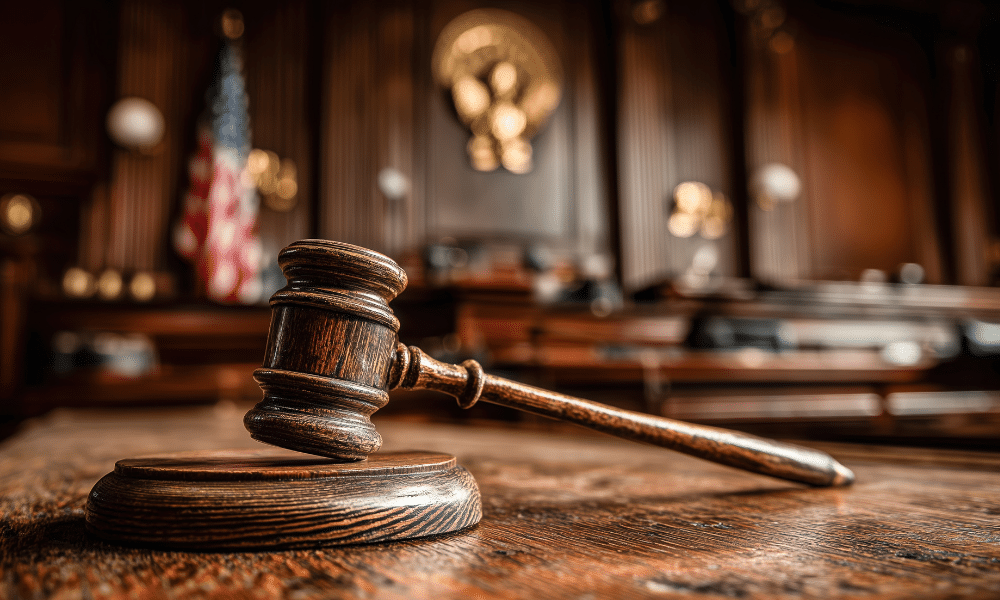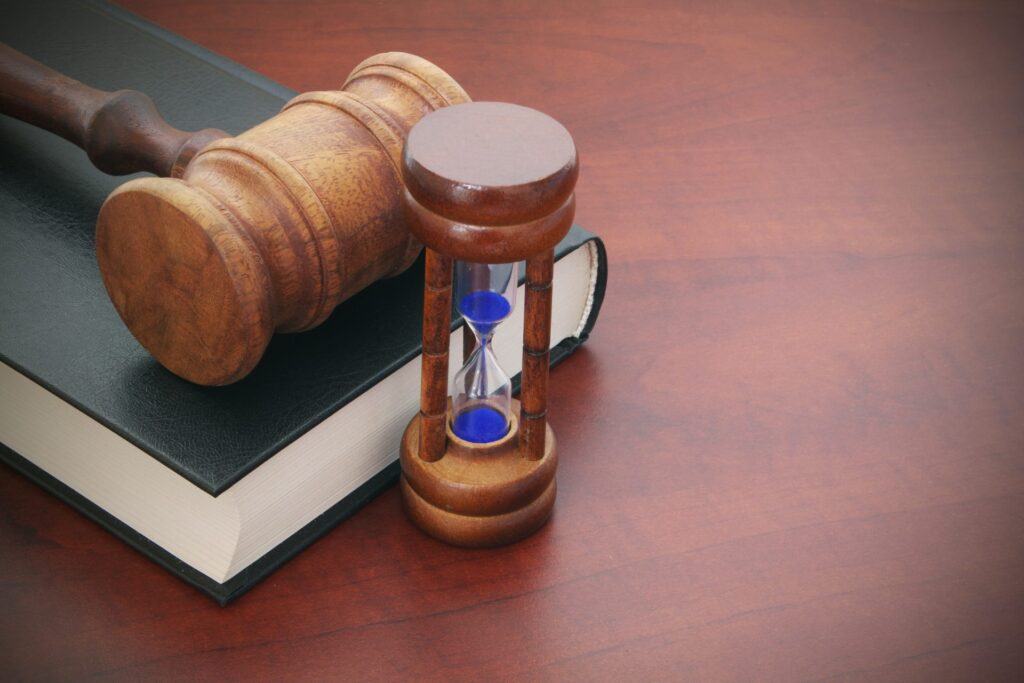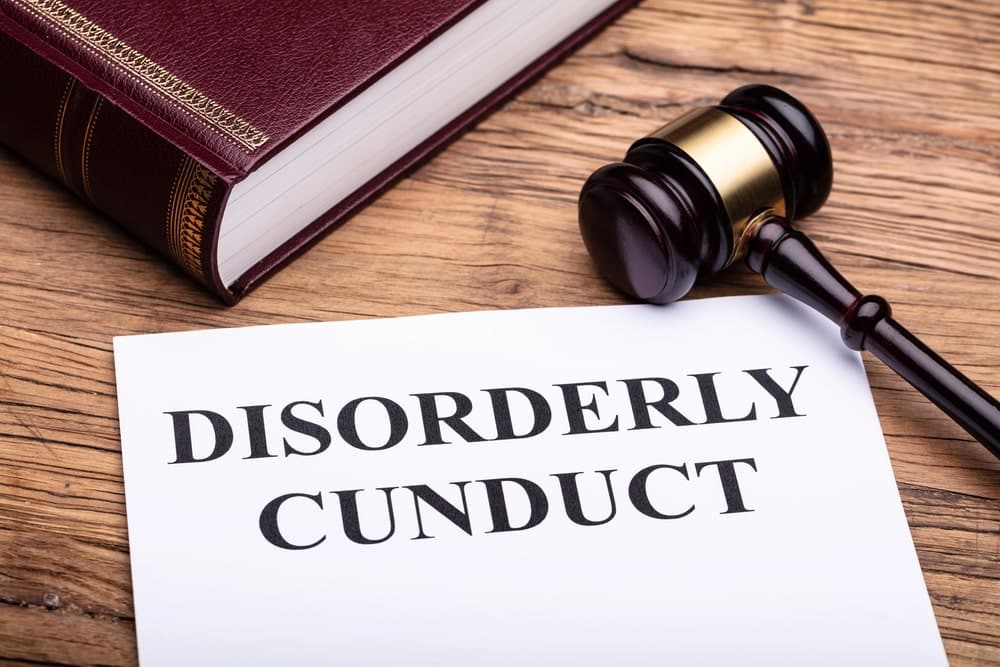Updated: July 2025
If you have been arrested for a crime in Maine, it is important to understand the consequences that you may be facing. In the state of Maine, the severity of a crime is measured by a code classification system.
Each code comes with its own minimum and maximum sentences. Several of the codes are felonies and some are misdemeanors. For every criminal offense, there is a set of minimum and maximum penalties.
Call 207-571-8146 or contact us online to schedule a consult with one of our highly skilled OUI/DUI & criminal defense attorneys, serving Maine, today.
Table of Contents
Criminal Sentencing in the state of Maine
When a person is convicted of a crime, they are subject to be sentenced by the judge. For the most part their sentence depends on the judge’s discretion but guidelines are set based on the criminal classification of the offense.
These classifications provide minimum and maximum guidelines for fines and jail time. A judge can also make the decision to include probation, community service and more.
Usually, the judge will look at the facts of the case and any aggravating factors that were involved. The judge will also take the offender’s criminal record, and social history into consideration.
In some cases the victim or victim’s family will also give input for the judge’s consideration. For many crimes there are mandatory minimum sentences that must be dealt out.
The most severe sentence a person can receive is a life sentence. The State of Maine does not use the death penalty. Some crimes, like murder, have their own special classification.
Murder cases usually result in a sentence of 25 years to life in jail.
What is the difference between a felony and a misdemeanor in Maine?
In Maine, according to the Maine Attorney General’s website on the Criminal Justice System, the primary difference between a felony and a misdemeanor in Maine lies in the severity of the crime and the potential penalties. A felony is a more serious offense, carrying harsher consequences & possibly punishable by time in prison. Misdemeanors, on the other hand, are less severe crimes with shorter potential sentences, usually served in county jails.
The distinction is essential as it determines the gravity of the legal proceedings and the impact on an individual’s criminal record. To learn more about the difference between a felony and misdemeanor in Maine, continue reading below.
Felony
In Maine, a felony refers to a serious offense that may lead to imprisonment for more than one year. Felonies are classified based on their maximum prison sentences and fines, except for murder, which carries a sentence of 25 years to life.
Maine has five classifications of crimes, with Classes A, B, and C all considered felonies. Among these, Class A crimes are the most severe, carrying penalties of up to 30 years in prison and fines up to $50,000.00.
Class B crimes entail maximum sentences of 10 years and fines of up to $20,000.00, while Class C crimes carry penalties of five years in prison and fines up to $5,000.00.
Prominent examples of felonies in Maine include:
- Murder
- Aggravated Assault
- Manslaughter
- Larceny
- Arson
- Unlawful Trafficking in Scheduled Drugs
- Burglary
- Drug Possession (some cases)
Misdemeanor
A misdemeanor in Maine is a less severe crime than a felony, though it still carries significant consequences. Unlike felonies, which can lead to imprisonment for more than a year, misdemeanors typically result in sentences served in county jails, with a maximum of 364 days.
Maine classifies misdemeanors into two categories: Classes D and E. Class D misdemeanors may result in up to 364 days in county jail and a fine of up to $2,000.00. Class E misdemeanors, on the other hand, can lead to a maximum of six months in county jail and a fine of $1,000.00.
Common examples of misdemeanors in Maine include:
- Domestic Violence (some)
- OUI Drunk Driving Offenses (1st & 2nd offenses)
- Disorderly Conduct
- Assault (some)
- Drug Possession (some)
- Driving with a Suspended License
What are the consequences of a felony conviction in Maine?
A felony conviction in Maine leads to significant and permanent consequences. Maine does not allow expungement, meaning a felony conviction stays on your record for life. This can severely impact job opportunities, housing options, voting rights, and firearm ownership.
Having a felony record also affects personal relationships and carries a social stigma. Furthermore, public records and background checks will reveal felony charges and convictions, affecting your reputation and future opportunities. Because the consequences are so severe, securing experienced legal representation is essential if you’re facing felony charges in Maine.
Call 207-571-8146 or contact us online to schedule a consult with one of our highly skilled OUI/DUI & criminal defense attorneys, serving Maine, today.
Classifications of Crimes in Maine
In Maine, a new criminal classification system has replaced the outdated misdemeanor and felony distinction. The system now utilizes five classes of crimes, offering a wider range of penalties. The classifications range from Class A (most severe) to Class E (least severe), with Class D and E offenses considered misdemeanors. It’s crucial to determine the specific classification of your charges and understand the potential penalties associated.
Notably, certain crimes may have unique circumstances and may not fit within the standard classification framework. For instance, murder charges carry a punishment of 25 years to life imprisonment. An example of a Class E crime in Maine could be criminal mischief involving property damage valued at less than $200.
It’s essential to consult an experienced criminal defense attorney at The Maine Criminal Defense Group, who can provide guidance tailored to your specific case. They can assess the details surrounding your charges, investigate any mitigating factors, and build a robust defense strategy. Below is a run-down of each class of crime in Maine.
Class E Misdemeanor Crimes
Class E crimes are misdemeanors that carry a maximum penalty of a fine of up to a $1000 and/or a jail sentence of up to 180 days of jail.
It is the class used for the least serious offenses like operating on a suspended license, disorderly conduct and theft under $1,000. Along with Class D crimes, these charges are typically misdemeanors.
Class D Misdemeanor Crimes
Class D offenses are misdemeanor crimes that include domestic violence assault cases, assault and OUI / DUI / DWI (drunk driving) offenses. Class D offenses carry a maximum penalty of up to 364 days of jail and a fine of up to $2000.
If you simply plead guilty to a Class D offense, the judge can sentence you to the maximum penalty and you will have no recourse.
Class C Felony Crimes
A Class C offense is a felony crime and is the lowest level felony offense in Maine. An example of a Class C offense could be an Aggravated OUI where you may have 2 or more priors.
It could be a felony habitual offender charge. It could be an Aggravated Criminal Mischief or felony theft.
The maximum fine or penalty that could be imposed for a Class C conviction is up to 5 years of prison and/or $5000 in fines.
Class B Felony Crimes
Class B offenses are felony crimes and are considered extremely serious charges in Maine. This class of charges includes trafficking in drugs, some sexual assault cases, aggravated assault cases and motor vehicle DUI involving serious bodily injury.
Class B crimes include punishments up to 10 years in prison and/or a fine of up to $10,000.
Class A Felony Crimes
Class A offenses are considered a felony in Maine and are reserved for the most serious of crimes such as manslaughter, gross sexual assault (commonly referred to as rape) and aggravated trafficking in scheduled drugs.
The mandatory maximum penalty that can be imposed is up to 30 years in prison and/or a fine of up to $50,000.
If the charge is murder, the minimum sentence that can be imposed would be 25 years and up to life imprisonment.
Maine law has an extra caveat to the law if a weapon is involved. In circumstances where a dangerous weapon was used to commit the crime, the charges will be one class higher than average.
For example, a domestic violence assault is usually a Class D crime, but if a gun was used during the assault, it will be charged as a Class C crime.
If the crime was already a Class A, consideration for the use of the weapon will be taken when deciding a sentence.
Felony Sentencing Options in Maine
If you’ve been charged with a felony offense in Maine, understanding the possible sentencing outcomes is critical to preparing your defense and protecting your future. Felony convictions, whether for a Class A, B, or C crime, can carry serious consequences, but not all felony sentences lead to prison. In many cases, a skilled criminal defense attorney can negotiate for reduced penalties, probation, or alternative sentencing options.
Here’s what you need to know about how felony sentencing works in Maine:
Prison Time for Felony Convictions in Maine
Maine law allows judges to sentence defendants to any term of imprisonment within the statutory limits for the offense class. These limits are:
- Class A felony: Up to 30 years in prison
- Class B felony: Up to 10 years in prison
- Class C felony: Up to 5 years in prison
However, in certain cases, such as those involving dangerous weapons, repeat offenses, or mandatory minimums, the judge must impose a sentence within an elevated sentencing range. For example, if you’re convicted of a Class B felony involving a firearm, you may face a mandatory minimum sentence of 2 years, with a possible maximum of 10 years.
Judges weigh various factors, including the severity of the offense, prior criminal history, the presence of aggravating or mitigating circumstances, and whether anyone was injured. Judges have broad discretion in determining where within that range your sentence will fall.
Split Sentences and Suspended Sentences (Felony Probation in Maine)
Not every felony conviction results in a full prison term. In many cases, Maine courts will consider split sentences or suspended sentences with probation:
- A split sentence allows a portion of the prison sentence to be served in custody, while the remainder is suspended and served on probation.
- A fully suspended sentence places the defendant directly on probation without serving jail time upfront.
During the probation period, you must follow strict court-ordered conditions such as:
- Remaining law-abiding
- Attending counseling or treatment
- Seeking or maintaining employment
- Avoiding drug/alcohol use
- Reporting to a probation officer
- Paying restitution to victims
Failure to comply with probation terms can result in revocation of the suspension and immediate incarceration for the full sentence.
Deferred Disposition in Maine Felony Cases
For certain felony charges, such as Class C crimes or Class B drug offenses, a judge may offer deferred disposition. This is a valuable legal option for eligible defendants.
Under deferred disposition:
- You plead guilty, but sentencing is postponed.
- You must meet specific conditions over a set period (e.g., treatment, restitution, no new charges).
- If you successfully complete the requirements, you may be allowed to withdraw your plea, and the charges can be dismissed resulting in no conviction.
However, if you violate the terms, the court can impose the full sentence at a later date. That’s why working with an experienced defense attorney is crucial for ensuring compliance and avoiding setbacks.
Contact Our Maine Criminal Defense Attorneys Today
Whether you’re facing a misdemeanor or a felony charge in Maine, the consequences can be life-changing. From jail time and probation to fines and a permanent criminal record, even a lower-level offense can affect your freedom, employment, and reputation. For felony charges, the stakes are even higher with mandatory prison terms, probation conditions, or long-term supervision often on the table.
At The Maine Criminal Defense Group, we understand the full spectrum of Maine’s criminal sentencing laws and how to navigate them strategically. Our attorneys have decades of experience helping clients fight charges, reduce penalties, and pursue alternative outcomes like deferred disposition, probation, or case dismissal.
If you’ve been charged with any crime in Maine don’t wait to protect your future. Contact our office today for a confidential consultation and get the legal guidance you need to move forward with confidence.
Call 207-571-8146 or contact us online to schedule a consult with one of our highly skilled OUI/DUI & criminal defense attorneys, serving Maine, today.
Blog Articles

After an arrest and criminal charge in Maine, a defendant’s first court appearance may be to apply for bail at the arraignment and bail hearing. The process of securing a[...]

If you are charged with a crime in Maine, going to trial is just one of the possible outcomes. In fact, around 90 percent of criminal cases in Maine are[...]

Defendants in criminal cases typically have four options for resolving their case if the charges are not dismissed: Plea negotiation, where the defendant agrees to plead guilty (or no contest)[...]

Many people are unaware that it is a criminal offense in Maine to make a false report of an emergency that causes public alarm. Even those who are aware of[...]

A criminal conviction usually appears on criminal records for life in Maine, potentially impacting the individual’s employment, education, travel, housing, immigration status, and more. However, certain low-level misdemeanor convictions can[...]

The legal term for sentencing a convicted criminal is not required to serve is called a suspended sentence. A suspended sentence is handed down during the sentencing portion following a[...]

If you receive a traffic ticket in Maine, you may be facing far more than demerit points or an administrative penalty. You could be facing criminal sanctions and a permanent[...]

In Maine, disorderly conduct laws effectively make disturbing the peace a criminal offense. While disorderly conduct is considered one of the least serious offenses under Maine’s Criminal Statutes, it can[...]

Any criminal charge for a drug-related offense is a serious matter in Maine,but how consequential the outcomes can get may depend on whether the charge is filed at the state[...]

